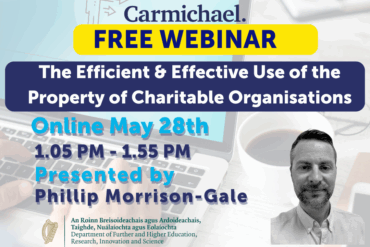In accordance with their fiduciary duties to the organisation, board members have a responsibility to implement good governance. The board is expected to operate collegially. Each board member brings to the boardroom their own particular skills, knowledge and experience, and has a duty to apply their skills, knowledge and experience, acting at all times in the best interests of the organisation.
An effective board seeks to stimulate the flow of ideas, identify key issues, consider alternatives and make informed decisions. To do so requires often-vigorous debate, which can sometimes turn into negative conflict. There are many more issues and situations outlined in section 2 below that can give rise to a board dispute. Such disputes must be dealt with as soon as possible, because if left unresolved,
they can undermine the board’s effectiveness and the organisation’s performance.
To set out the process for the removal of a board member from a board for nonprofit organisations.
This policy guide outlines the internal processes and best practice steps to be taken. It complements existing legal provisions for board member removal under the Companies Act 2014. If there is any conflict between this guidance document and the organisation’s constitution or relevant legislation, the constitution and/or the law will take precedence.
Before, applying the policy in an actual board member removal situation, the board should consider if it should obtain professional advice on the specific nature of the dispute and application of the procedures in the policy, particularly, if steps 1 (informal resolution) and 2 (mediation) below fail to have the matter resolved.
AI is rapidly evolving and its use in the nonprofit sector presents concerns, challenges and opportunities. As part of their ‘Consulting with NGOs’ module run by Kathleen O’Reilly, a team of UCD students were teamed up with Carmichael to address these questions.
The students conducted research to assess both the current applications of AI in nonprofit organizations and the potential opportunities for its integration.
This document is an overview of their work and summarises their findings on AI usage in the sector, ethical considerations and barriers, guidelines for using prompts and key recommendations for using AI.
The background literature review which gives further context to this summary document will be released in the coming months.
Thank you to Giovanni Morandi, Vivian Li, Colin Cunningham, Nathan Souillard, Sorcha Love & Gavin Maggio for this useful piece of work.
Each year, 100s of new nonprofits are established in Ireland and these new groups can find it incredibly challenging to establish themselves and secure funding in a sector with more than 30,000 organisations already in existence. This resource provides some tips to help a new nonprofit standout and stand the test of time.
When you are hiring new board members, this document coupled with our latest Podcast release here, can assist you with recruiting the right board members for your Organisation.
Setting up a nonprofit of any sort can be an exciting project. People who are inspired to make a difference, to address unmet needs or to make a change in the way things work can achieve great things. It is almost impossible to make significant progress without involving others to help complete the work that needs to be done, which will mean setting up an organisation of some form. This guide will bring you through the key considerations in setting up a nonprofit organisation as well as provide descriptions of the most common forms of nonprofit to help you choose the best form for your organisation.
This document is intended for guidance only in the area of Risk Management and all organisations should develop their own Risk Management System and Risk Register.
This article explains how to agree operational policies for any nonprofit and the steps involved in putting policies in place, in accordance to the Charities Governance Code core standards (3.4).
The Compliance Calendar is a useful addition to the board materials for a meeting to ensure that relevant actions are addressed by the Board. It can also assist with preparing the agenda for an upcoming meeting. This Sample Compliance Calendar, suitable for small or all volunteer organisations, should be amended/tailored to reflect the specific compliance requirements of your own charity or non-profit.
Carmichael wishes to acknowledge the support of Colm Hanley, LK Shields Solicitors in the development of this resource.
The Compliance Calendar is a useful addition to the board materials for a meeting to ensure that relevant actions are addressed by the Board. It can also assist with preparing the agenda for an upcoming meeting. This Sample Compliance Calendar should be amended/tailored to reflect the specific compliance requirements of your own charity or non-profit.
Carmichael wishes to acknowledge the support of Colm Hanley, LK Shields Solicitors in the development of this resource.




